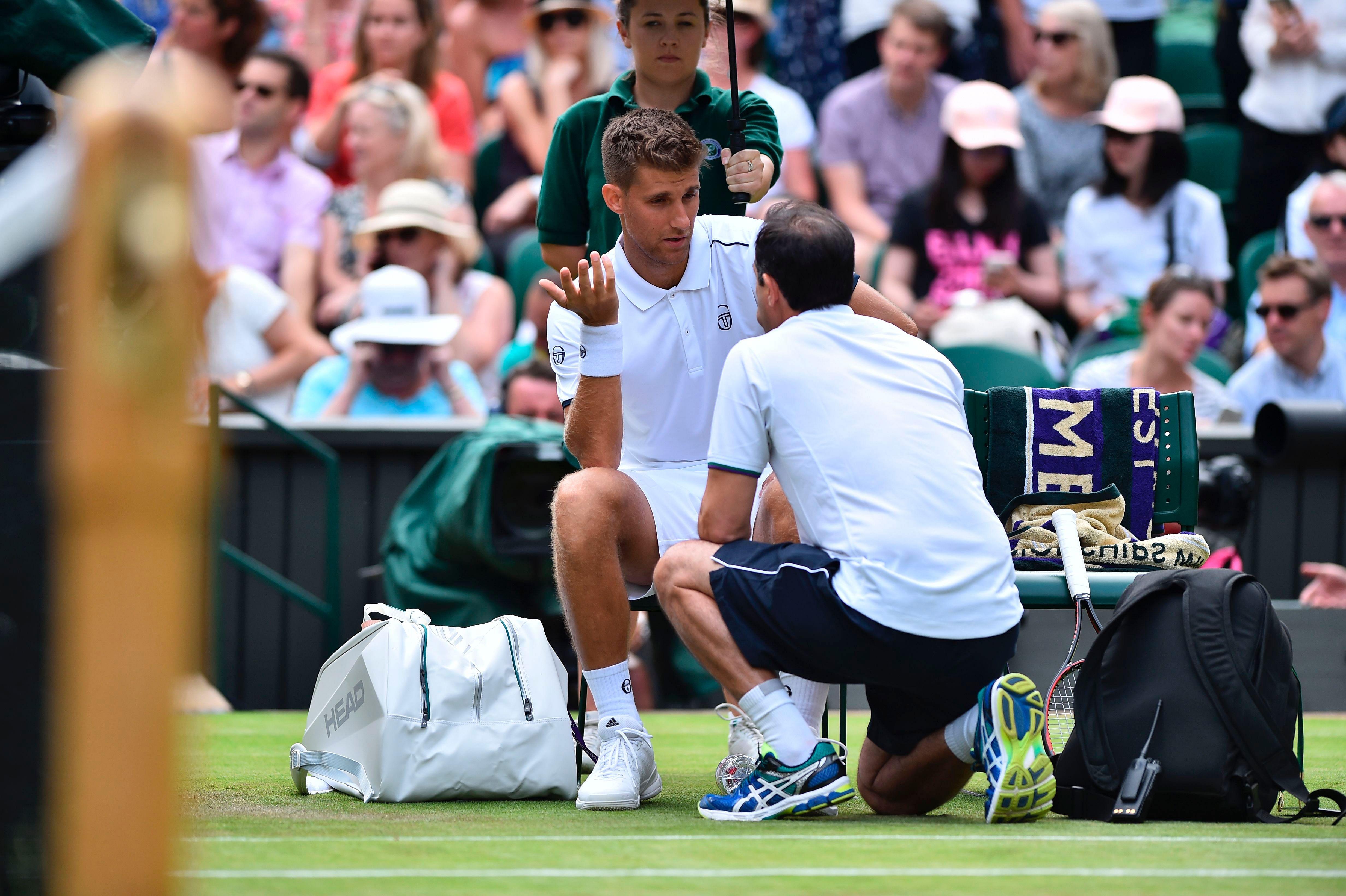As I walked from the media area to Centre Court, I overheard a middle-aged lady talking excitedly about how she would soon be watching Novak Djokovic and then, Roger Federer. "They are two of my all-time heroes," she said. "I am going to be dining out on this for years." We caught each other's eye and I signalled my agreement.
And yet a couple of hours later, a sense of anti-climax reverberated around Centre Court.
First, Martin Klizan walked off against Djokovic towards the beginning of the second set, hampered by a tight calf. Then, Alexandr Dolgopolov pulled out against Federer after only 12 games with an ankle injury.
I cannot say if Klizan and Dolgopolov could have given it a bit more, continued a little longer, but I suspect the answer is they could not have. Which professional tennis player in his right mind would be on Centre Court against a titan of the game, live on television, and not wish to continue?
My gripe is why they came on to court in the first place when it was patently clear, certainly in the case of Klizan, that his tenure would be short indeed. As Djokovic put it in the aftermath: "I heard that Klizan had issues even before walking on the court. You could see he wasn't moving. Once the ball was a couple of feet away from him, he let it go."
When players are injured, they can withdraw in the hours before the match, with lucky losers catapulted into the breach.
Alexander Bublik, who put up such an entertaining contest against Andy Murray on Monday, came into the tournament at only short notice. How the crowd thrilled to this young player, outmatched in class, but not in spirit, fighting all the way to the end of the final set, and acknowledged by his conqueror in an embrace of mutual respect.

But perverse incentives get in the way of players doing the right thing. Withdraw from Wimbledon and you are deprived of the £35,000 (S$62,446) pay cheque that first-round losers receive, even if they withdraw after one point of the first game.
As one former player told me on Tuesday: "Life on the road is tough. You would have to be crazy to get to the first round and withdraw. You might not get another pay cheque like that all year. Much better to play a game or two, then drop to the ground."
There are, however, occasions when players and their respective camps know full well that the injury is severe. In these circumstances, the Grand Slam committees should offer first-round competitors the chance to receive prize money even in the event of a withdrawal. This would incentivise those with significant injuries to pull out, would give a fillip to lucky losers and would mitigate the risk of Tuesday's Centre Court farce recurring.
Tennis must not take its spectators for granted. Without that woman whom I overheard, and thousands like her, Wimbledon would be meaningless.
THE TIMES, LONDON
